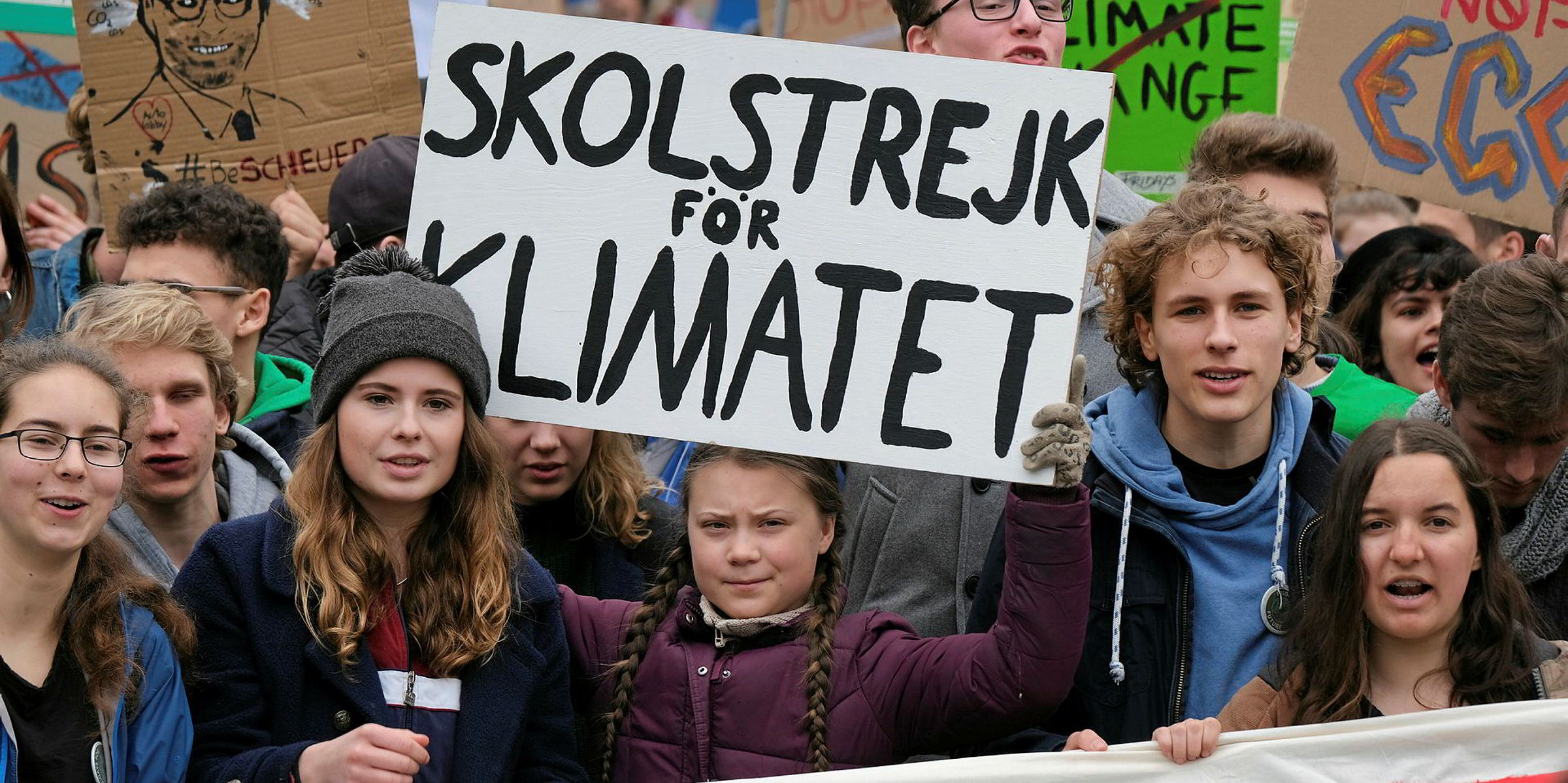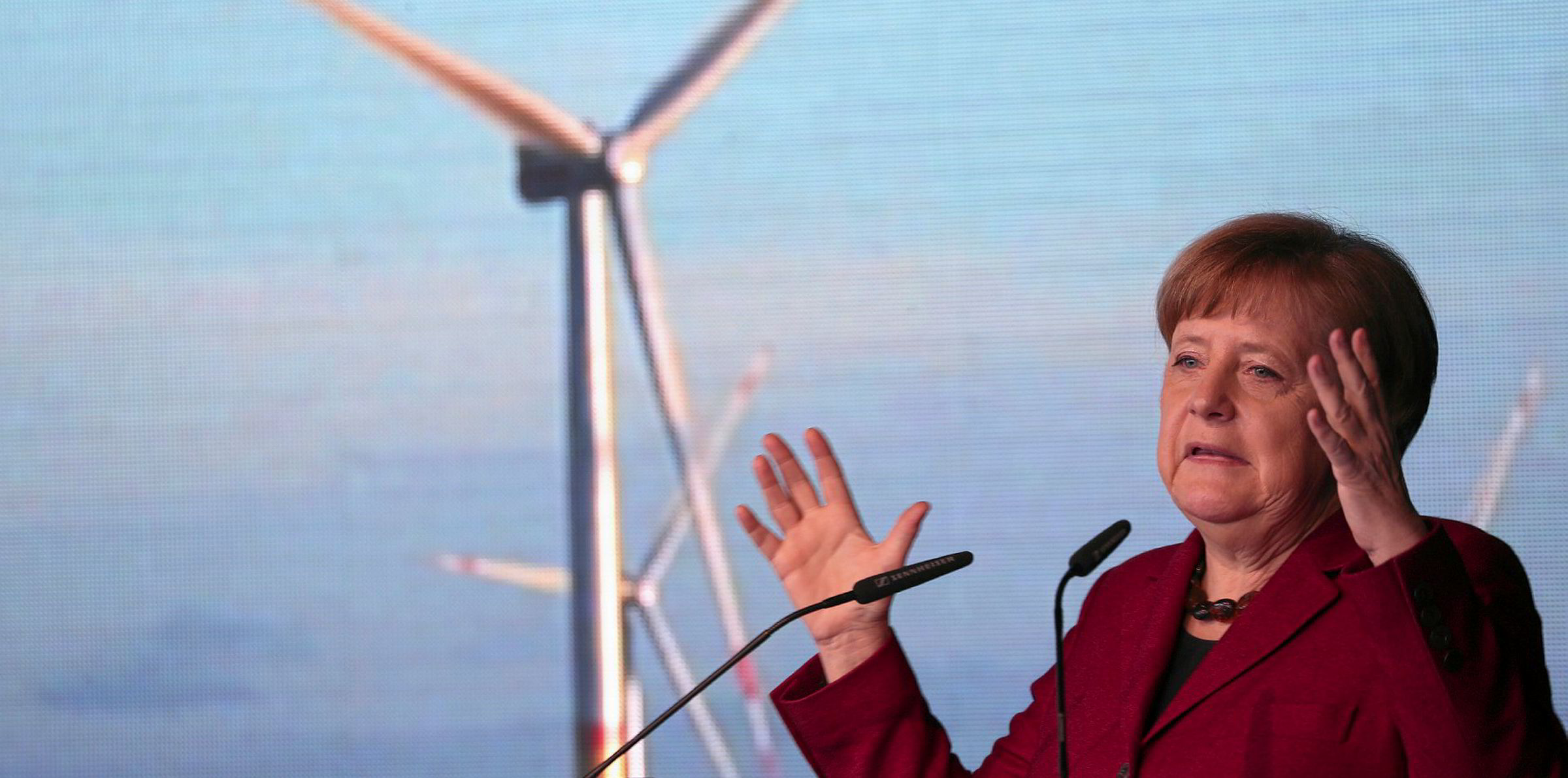The lobbying by the wind industry in Germany to convince the government of Chancellor Angela Merkel to finally take action against the collapse of what used to be Europe’s largest wind power market has been intense in recent months.
But Swedish teen climate activist Greta Thunberg and the mass movement she has triggered are almost equally to thank for the announcement by Merkel and her so-called ‘climate cabinet’ to increase Germany’s offshore wind power targets – and axe a cap on support for solar.
As Merkel’s conservatives (CDU/CSU) and their Social Democratic (SPD) coalition partner tried to settle last differences in climate policy during a night negotiation marathon, climate activists camped out in front of the chancellery and parliament in Berlin to make sure pressure on the government will be non-stop.
It was the start of what will likely be the biggest climate protests Germany has seen, with several hundred thousands, if not millions, of both teen and adult protesters taking to the streets in more than 500 demonstrations across the country.
Some 270,000 people marched through Berlin, most starting at the Brandenburg gate, while cyclists already in the morning rush hour blocked car traffic on key roundabouts. Extinction rebellion plans to paralyse traffic in the entire city centre.
This being Berlin, the club scene is also gearing up for a giant rave with techno music against the climate crisis throughout the city.
Many companies are freeing their employees to take part in the protests, such as the Springer publishing group that includes Germany’s biggest and usually more conservative tabloid, Bild.
Danish wind power OEM Vestas in a statement said “we are strongly encouraged by all the initiatives around the world that support the cause we have been fighting for 40 years, including the fantastic work young activists have done in fostering a global climate movement such as FridaysForFuture,” although it only endorses its employees to participate in protests after work.
Merkel’s climate and renewable policies after an early start have slowed down in recent years, and the country has lost its leading role in the Energiewende – the transition from nuclear and fossil to renewable power.
That could now backfire for the government.
As weekly school student strikes for the climate have grown into a mass movement, so has the approval for the Green Party, which now rivals Merkel’s CDU/CSU in opinion polls.
Just today, a new poll showed that the Greens in the key state of Baden-Württemberg – the only state with a Green governor so far - would poll 38% if election were held today. That is way ahead of the CDU (26%), which is the junior partner of the Greens in a coalition government there.
The state is far from being backwater. It is a heavily industrialised power house with 11m inhabitants and home to much of Germany’s key industries.
Merkel and her allies from the CSU from Bavaria, where the Greens in elections last year came in a strong second, know how the Greens have replaced the SPD as their main rivals.
Fridays for Future is reminding the government that lip service on climate issues is not enough.


